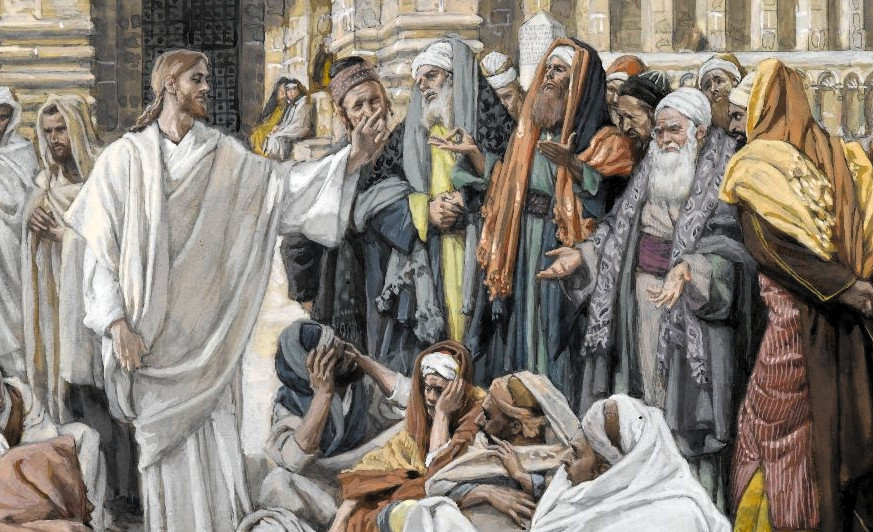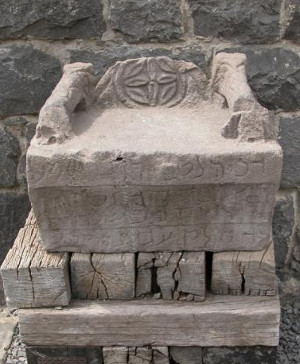
Then Jesus spoke to the multitudes and to his disciples, saying, "The scribes and the Pharisees sat on Moses' seat. Therefore, all things whatsoever they tell you to observe, observe and do, but do not do their works; for they say, and do not do." — Matt. 23:1-3
Recently, there has been a resurgence of interest in the "Hebrew roots" of Christianity. Perhaps because modern Christianity has gotten so far from Biblical culture and ethics, people are looking for a corrective, and they see something valuable in modern, observant Jewish culture (and there is definitely value there!). Maybe Christians have seen the church de-value Biblical law for so long, that their consciences have been pricked and they are trying to recapture what has been lost. Whatever the reason, "Hebrew roots" interest is something that ought to teach Christians that they have gone far off track from the culture and values that Jesus promoted.
From what I have seen, there are well-meaning people in "Hebrew roots". It is a diverse movement, and its teachers seem to have been affected by the typical errors that you see in many Christian churches (particularly errors of eschatology). I empathize with their desire to get closer to the law, but I see a big problem in their approach: they all tend to follow rabbinic teachings to a greater or lesser degree (as opposed to Karaite Judaism, for example).
The problem with the Rabbis
Now, sometimes the rabbis have interesting things to say. Occasionally, they might even agree with each other. But they are not reliable teachers, because they add a lot of unfounded opinions and teachings which are taken to be equally authoritative to (or even more authoritative than) scripture.
The rabbis are the direct (teaching) descendants of the Pharisees. They are afflicted with the same core problems which Jesus pointed out in the Pharisees (see Matt. 15 and 23). The two main problems are:
- They add unnecessary burdens to the law (Matt. 23:4); there are now (reportedly) 200,000 to 500,000 additional "fence laws" which the rabbis have added.
- They make void the law by means of their tradition (Matt. 15:6). Anyone who studies rabbinic interpretations will know what I'm talking about.
(Not surprisingly, adherents to Karaite Judaism point to these same problems with the rabbis.)
So what was Jesus saying in Matthew 23:3, when he told his disciples to follow the scribes and Pharisees? I have heard Hebrew roots adherents use this verse to justify using rabbinic teachings. R.T. France (although he doesn't support the view) mentions that:
Jesus' injunction to the crowds to follow the scribes' teaching is often cited along with v.23 of this chapter ("not neglecting the others") as evidence both that Jesus himself conformed to the scribal tradition and that Matthew's church still operated within the confines of rabbinic law and was not yet in conflict with the Jewish establishment. (France, The Gospel of Matthew, 860)
Was Jesus somehow praising the scribes and Pharisees teaching at the same time as he denounced them as hypocrites?
The seat of Moses
The answer is no, but I'm going to give a different (and more interesting) explanation than the typical one. The typical one, (supported by, for example, R. T. France and D. A. Carson) is that Jesus was speaking "ironically." This could be true, but I think there is a better one.

Synagogue seat from Chorazin
Jesus mentioned the "seat of Moses" in Matt. 23:2. Some people identify this with a particular seat in the synagogue, from which rabbis taught the law and its interpretation. But R. T. France reports that this "lacks clear evidence" (ibid, 859).
The more obvious connection is with the judgment authority of Moses himself as the supreme judge of Israel. Remember that Moses had set up a system of decentralized judges to whom all cases would be brought (Deut. 1:15, Deut. 16:18). Moses himself, until his death, was at the top of the decentralized structure, and would hear only the most difficult cases (sort of like the United States Supreme Court). This "institution of final appeal" was actually codified by God in law:
Does this sound familiar? Remember what Jesus said: "all things whatsoever they tell you to observe, observe and do"? The Septuagint rendering of the last part of Deut. 17:10 is: "you shall observe to do all whatsoever shall have been appointed to you by law."
It seems clear that Jesus was referring to this law from Deuteronomy. It also fits the context. Many scribes and Pharisees sat on the Sanhedrin, which was the highest court for Jews of the first century. Jesus was about to rip into the scribes and Pharisees with his most stinging rebukes, but he wanted to show that he was not disrespecting the authority of the Sanhedrin as a civil body established by Biblical law.
Jesus is saying, in effect, "if you take your case to law, and it is appealed to the highest court in the land, then you must follow the law in Deuteronomy 17:8-11, and follow the judgment of the Sanhedrin in that case, exactly as they tell you. Jesus was not even recommending going to law before the Sanhedrin; earlier he had recommended the opposite: Matthew 5:25.
So this has nothing to do with the teaching of the Pharisees, which Jesus had specifically warned his disciples to avoid: Matthew 16:6-12. In the same way, you must beware of the teaching of the rabbis.
